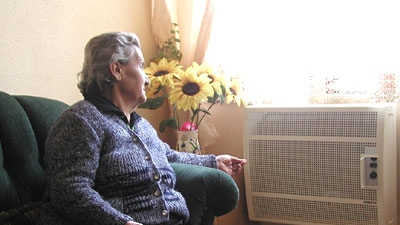A poverty and social impact analysis (PSIA) designed for Romania evaluated options for replacing the European nation’s heating subsidies with a more well-targeted system of benefits.
The study explored what impact this reform would have on Romanians who must heat their homes for five or six months out of the year.
Driving reform was a mandate by the European Union that Romania eliminate heating subsidies for apartment dwellers and the government’s need to cut spending in general, but also a desire to make the system of subsidies fairer.
Sulfina Barbu, Romania’s minister of labor and social protection; Lacramioara Corches, general director of the country’s social assistance programs; and Emil Tesliuc, a senior economist with the World Bank, presented the results of the study in early November.
Corches said that before reform, 21 percent of the country’s population received 83 percent of all heating subsidies – even though the wealthiest Romanians made up 40 percent of that group. The nation’s poorest, meanwhile, received a small fraction of the assistance.

